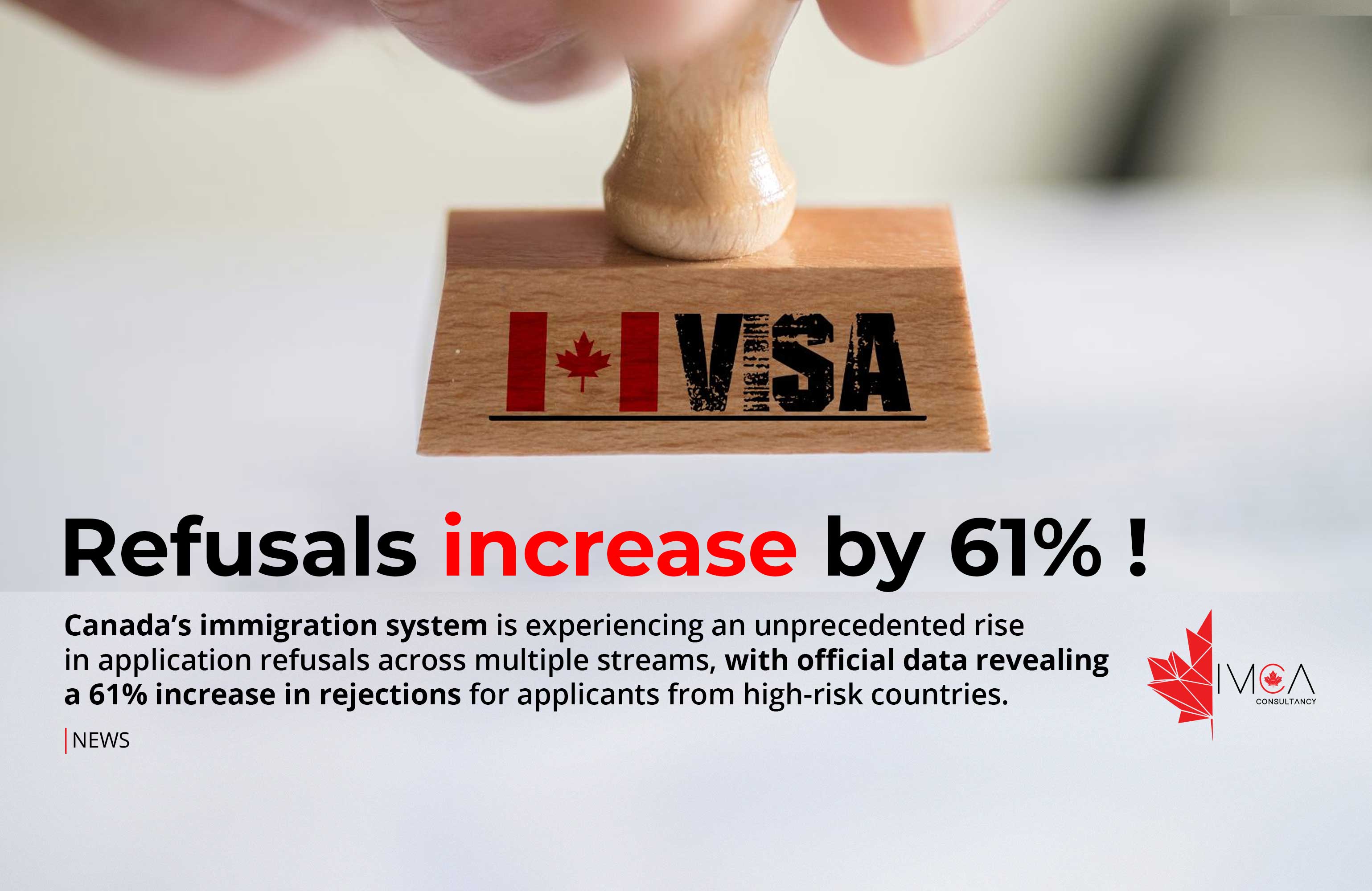Refusals increase by 61%

Surge of Recent PR Application Refusals in Canada by IRCC
In 2025, Immigration, Refugees and Citizenship Canada (IRCC) has seen a sharp increase in refusals across various immigration categories, including Permanent Residency (PR) applications. Official data shows a 61% increase in refusals for certain high-risk applicant groups. This surge is fueling frustration and concern among immigration hopefuls as well as immigration professionals.
Reasons Behind the Rise and Examples of Unreasonable Refusals
Several factors contribute to this phenomenon:
Overwhelmed IRCC Operations: IRCC processes close to 2 million applications simultaneously, causing officers to sometimes overlook crucial documents or misinterpret eligibility, leading to erroneous refusals. For instance, some applicants who submitted sufficient proof of funds have been refused due to officer oversight.
Inconsistent Decision-Making: There are reports of stark inconsistencies, where officers grant permits under similar circumstances for some applicants while refusing others with seemingly perfect documentation. This inconsistency breeds perceptions of unfairness and weird refusals.
Procedural Errors and Miscommunications: IRCC refusal letters have traditionally lacked depth in explaining reasons for denial, leaving applicants confused. There are documented cases where IRCC issued procedural fairness letters to wrong parties or asked for unnecessary documents. In some cases, valid language test results were overlooked.
Specific Examples from Applicants: One applicant reported receiving a refusal letter claiming they claimed three years of foreign work experience, whereas the documented evidence showed only one year. Despite reviewing the application thoroughly, the misunderstanding persisted, pointing to errors on the IRCC side. This and similar cases of misinterpretation by IRCC staff illustrate how bizarre and unreasonable refusals happen.
Calls for Transparency and Accountability
The increasing rate of refusals combined with these oddities drives calls for IRCC to provide clearer refusal letters, better officer training, and improved procedural fairness. Applicants and immigration consultants stress the need for:
Detailed and transparent explanations in refusal letters to help address issues effectively.
Consistency in decision-making to avoid arbitrary denials.
Easier access to Canada Global Case Management System (GCMS) notes for applicants to understand and contest refusals.
What Applicants Can Do
Despite the setbacks, refusal is not the end of the road. Options include reapplying, requesting a reconsideration (though success rates are low without clear errors), or pursuing judicial review. Professional legal or consultant support can significantly improve the chances of overcoming refusals.
This situation highlights a concerning trend where many refusals seem irrational, inconsistent, or based on mistakes rather than clear, justified grounds—causing worry and hardship for immigrants and their families trying to build a future in Canada.

